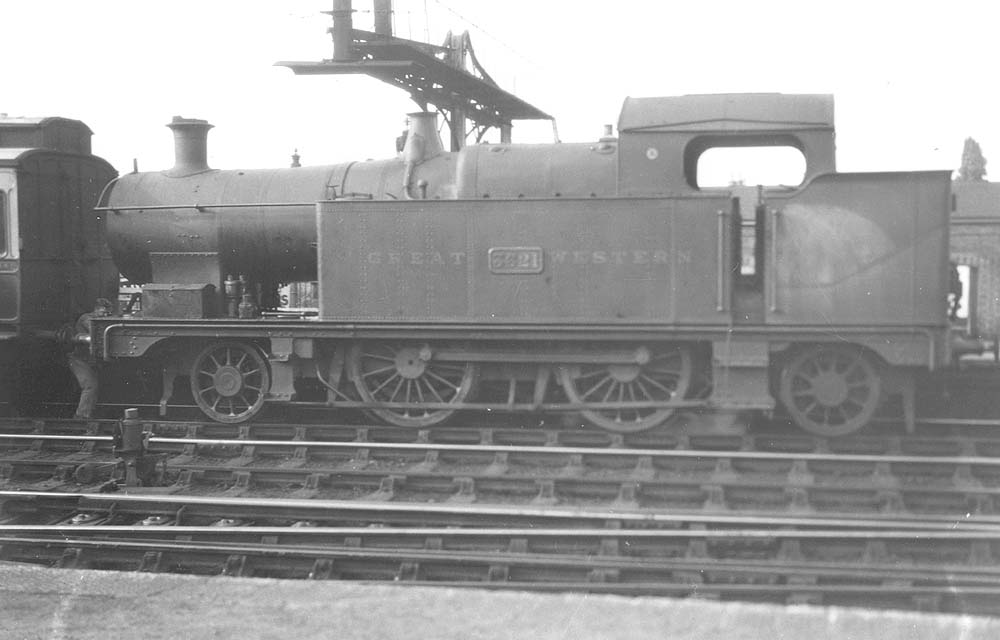|
|
 |
 |
|
GWR Route: Banbury to Wolverhampton
Leamington Spa - GWR Locomotives: gwrls206
 |
GWR 36xx class 2-4-2T No 3621 stopped at Leamington after
running tender first on a local passenger train from Stratford upon Avon.
Notice one of the footplate staff disconnecting the clerestory carriage. Number
3621 was built at Swindon in October 1903 and was the first of the final batch
of 36xx class engines. This batch had the rear overhang increased slightly to
provide extra coal capacity. No 3621 was withdrawn from Llanelly shed (LLY) in
January 1933 and scrapped at Swindon Works later that year. Number 3621 is seen
here with a long taper extended No 3 boiler. This boiler type had been fitted
to this engine since August 1912, but previously two other types of boiler had
been fitted. No 3621 had superheating installed in July 1927 and has a tall
safety valve cover and a copper capped chimney fitted with a deflector. A small
mushroom shaped air vent can be seen protruding from the top of the side water
tank. This replaced much larger headed vents, which were introduced following
an accident with the steam operated two-way water pick up apparatus on the
experimental engine No 11 (later No 3600).
As this engine picked up water at speed the small vents could
not relieve the internal pressure and the water tank side sheets split. The
small vents were only reintroduced following the removal of the water pick up
apparatus about 1921, but some of the class retained the larger vents - see 'gwrls200'. The power group letter on route colour disc
can be seen on the cab. This means of indication had been GWR practice since
1919. As seen here these 36XX class engines were normally classified power
group A (but some had their boiler pressure raised from 180lb to 195lb and were
classified power group B). Their route colour was Blue and they were employed
mainly on suburban passenger duties with about half the class being allocated
to sheds in the Birmingham area. They were displaced by the 2-6-2T large
prairies (51xx, 5101 and 61xx classes) in the early 1930’s and the entire
36xx class was withdrawn between 1930 and 1934.
 back back

|
|
|
